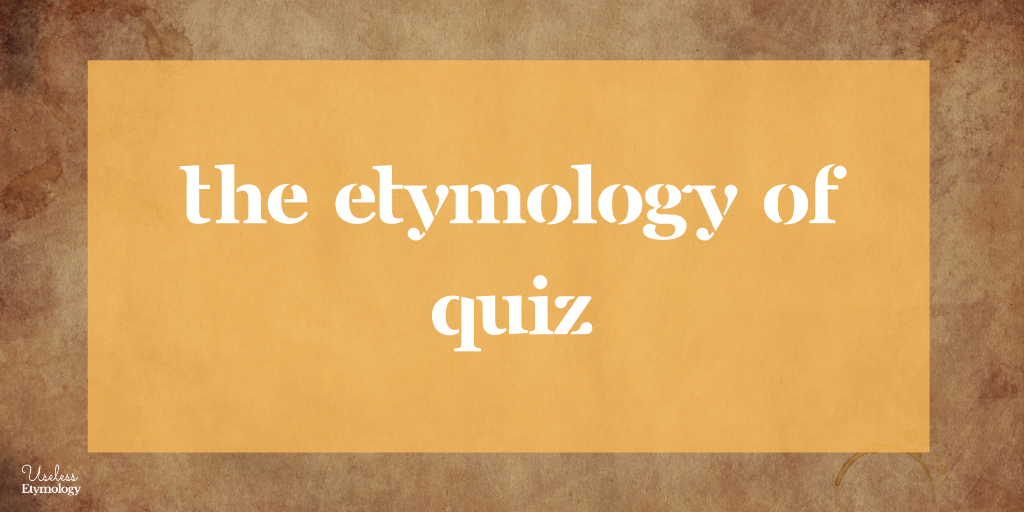Pop quiz! What do you think the original meaning of the word “quiz” was? If you know the answer, someone from the 1700s might call you a quiz.
Now the word “quiz” as in the thing you take at school most likely comes from the Latin qui es? meaning “who are you?”
In the 1800s, qui es? was the first question you would be asked in an oral Latin exam. Latin was far more of a cornerstone at every level of education at the time. Over time, qui es? was shortened to one word and then transformed into “quiz.”
But this isn’t the first recorded of the sense of the word “quiz”: Several decades before that, it’s recorded as university slang for an “odd person.”

In a 1783 edition of The London Magazine there’s a humorous article poking fun at university culture, and it says that a quiz is anyone who “thinks, speaks or acts differently from the rest of the world in general.” It suggests that the term is derived from the Latin question Vir bonus est quis? (“Who is a good man?”). So it could have originally meant “a good person who gets teased. But this might be in the sense of like calling someone a “goody two-shoes,” because the article also says it was particularly applied to studious people who are also pedantic and pretentious about it.
There’s also a song literally called “The Etymology of Quiz,” by Charles Dibdin from the mid-1800s. It doesn’t actually describe any etymology, but it gives a variety of meanings for the word quiz, saying that anyone or anything odd, comical, strange or droll—including the song itself—might be called a quiz.

You may have also encountered the folk etymology tale of theater manager James Daly (or Daley) who, based on a bet with a friend, declared he could introduce and popularize a new word in a single day. He reportedly chalked the word “quiz” on the walls of the the city and won the bet as the term caught on. Needless to say, this is a highly unlikely origin and has little evidentiary basis. Despite supposedly happening in 1782, a year prior to the London Magazine article, the article suggests that it had been in use in universities for some time before the publication.
It would appear that the exam sort of quiz and quiz as an insult are not directly connected, but they are in the same vein and culture, so it seems likely there was cross-influence there at the very least. And perhaps predictably, both may be influenced by the far older word “inquisitive.”

